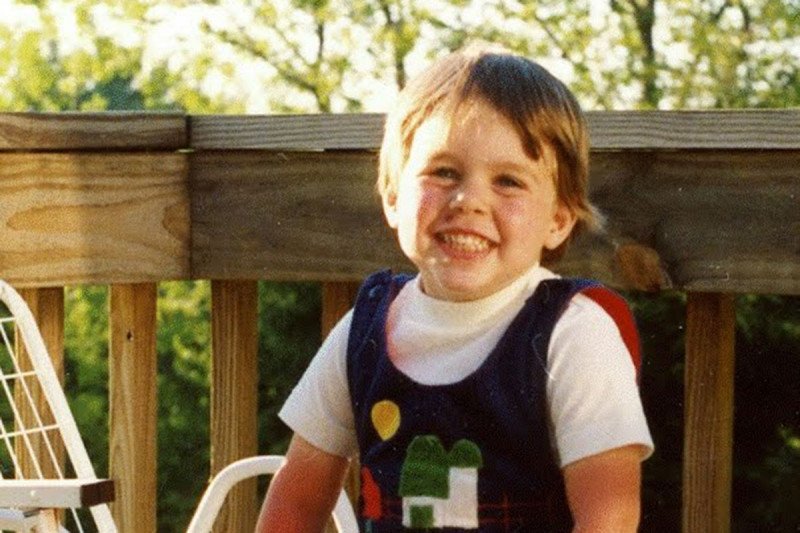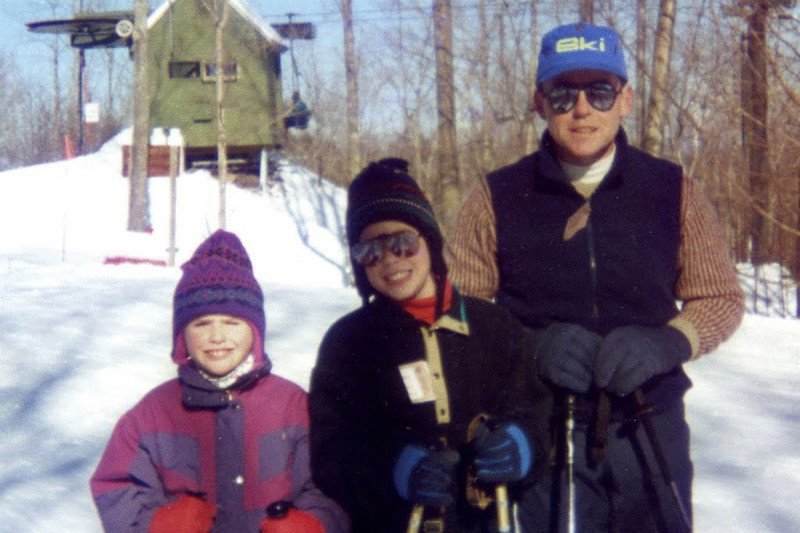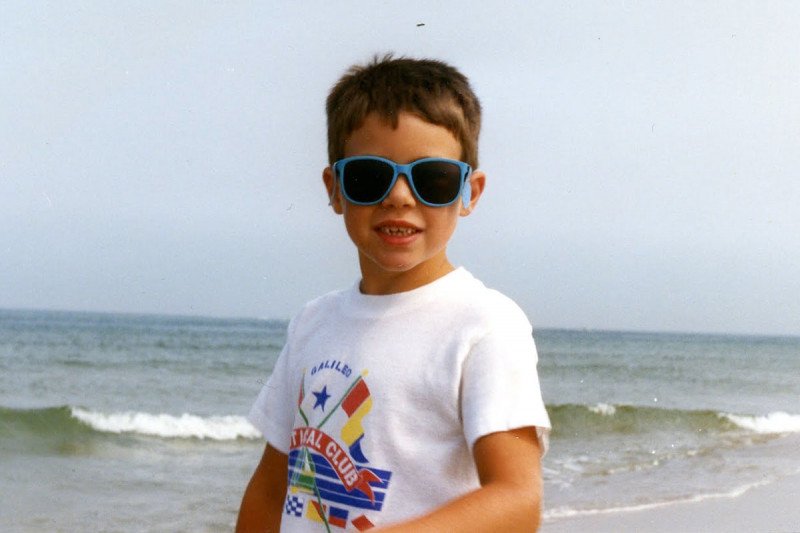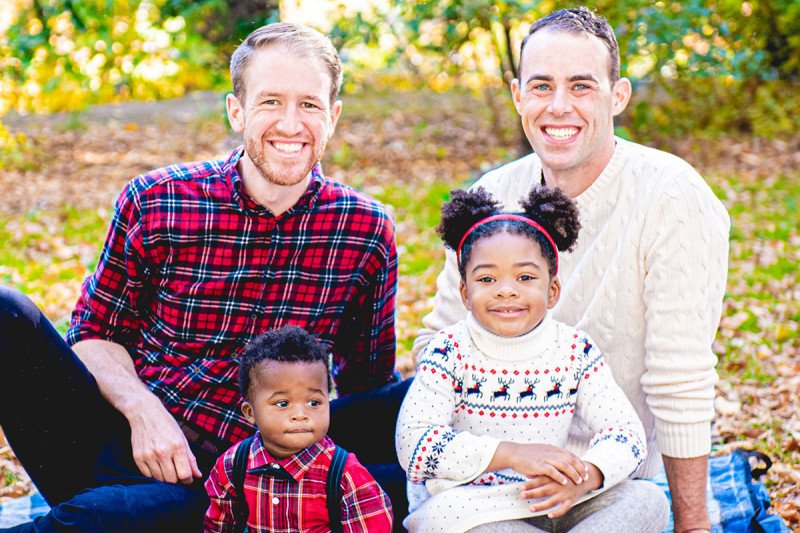
Ben Hegel is a swimmer. He has loved the water since his boyhood in New Hampshire, where he spent summers jumping off a covered bridge into the local brook with friends — the kind of childhood activity that made his future husband ask him if he grew up in Mayberry, the iconic small town from the 1960s TV series, “The Andy Griffith Show.” Today, he swims on a US Masters Swim Team for LGBTQ (lesbian, gay, bisexual, transgender, and queer) and allied athletes called Team New York Aquatics and serves on its board, helping to bring adult swim lessons to underserved communities in New York City. The team competes locally and regionally — even in the Gay Games and at international meets. Although he avoided sports in high school — and still laughs at the slightly traumatizing memory of having to play on the JV “B” soccer team at his sporty prep school — swimming, with its single lanes and self-competition, feels like the perfect sport for Ben.
Today, Ben happily serves on many teams. There’s his work team in Sloan Kettering Institute (SKI) Administration, where he is Senior Program Coordinator for two research programs, Computational and Systems Biology and Structural Biology, as well as one collaborative research center, The Alan and Sandra Gerry Metastasis and Tumor Ecosystems Center. There are the teams he’s part of as a leader in Memorial Sloan Kettering’s LGBTQ Employee Resource Network (ERN), and an allied member of both the BLAM (Black, Latino, Asian, and Multi-racial) and MSK Women on the Move ERNs. There is the swim team, which has allowed him to embrace his athletic side and to form new friendships. And there is the most important team of all — his family team, where he is a much-loved son, brother, husband, and father.
Growing Up
Ben lived in Atlanta, Georgia, for the first nine months of his life while his dad completed his PhD at Georgia State University, but then a very young Ben and his parents moved to New Hampshire, where his parents launched their careers. His mother, a nurse practitioner, was, until recently, Clinical Supervisor of Occupational and Environmental Medicine at Dartmouth-Hitchcock Medical Center, and his father is Professor Emeritus in the Department of Psychiatry at Dartmouth Medical School. His sister was born a few years after the family left Georgia.
Growing up on a quiet street, surrounded by young families and kids his own age, his childhood was filled with swim and tennis lessons, Boy Scouts, and hiking in the woods. He attended a private boarding school as a day student, where classes were Monday through Saturday, students wore uniforms, and none of his peers were openly gay.
“There were no gay/straight alliances or an LGBT Club back then,” Ben remembers. “It wasn’t until I went to college that I felt comfortable telling my new group of friends that I was gay and then telling my family.” His family embraced his announcement warmly, expressing no surprise, only love. “I am very fortunate,” he says. “Coming out improved all my relationships; it was a tremendous relief not having such a big secret.”
After graduating from Wagner College on Staten Island, where he majored in history, he joined MSK in 2008 as a Physician’s Office Assistant in the Head & Neck Service in the Department of Surgery. He moved into a Project Coordinator role in the same service after a few years. From there, he went to the Bobst International Center as Coordinator of Global Initiatives. In 2016, he transitioned to SKI, and in 2019, he was promoted to his current position as Senior Program Coordinator. He is responsible for the administrative aspects of the SKI Research Seminar Series, work-in-progress meetings for principal investigators (PIs), and the PI recruitment process for each of his programs, helping to shepherd new recruits from application to onboarding while assisting them with both the challenges of relocating to New York City and the complexities of starting a research lab at MSK.
A Love Story
A year or two after graduating from college, while he was out with friends at a piano bar in Manhattan called Marie’s Crisis, Ben met the man who would become his husband — Kyle, a Texan who had just moved to New York.
After about five years together, it was time to make their relationship official. They proposed to each other at dawn during a July camping trip with Ben’s family on the Cape Cod National Seashore. “We walked to the beach at sunrise and agreed that we wanted to spend our lives together and then returned to our campsite, where my family was just waking up,” he remembers. Over coffee and breakfast, with sandy feet and big smiles, they shared their news and then placed a call to Texas a few hours later to loop in Ben’s soon-to-be in-laws.
In March of 2014, they married at Housing Works Bookstore on Crosby Street before approximately 100 guests and many shelves of books. “A good friend officiated, our sisters did readings, and friends from Kyle’s chorus sang,” says Ben. And with that, they started their next chapter.
Today, Ben and his husband have two children — Gloria is five and Charles is one. They knew early on they wanted to be parents and discussed various options, including surrogacy, but ultimately decided to adopt, greatly influenced by the fact that Kyle’s nephews were both adopted. “Kyle had strong feelings about adoption being a win-win for everyone and we decided that was the route we wanted to take,” Ben explains.
For both children, Ben and his husband chose open adoptions and maintain relationships with their children’s biological mothers.
There are photos of the moms in the kids’ bedroom, and Ben and his husband engage their children in ongoing conversations about the people who love them. “We tell them you have a daddy and a papa, and also a mommy,” says Ben.
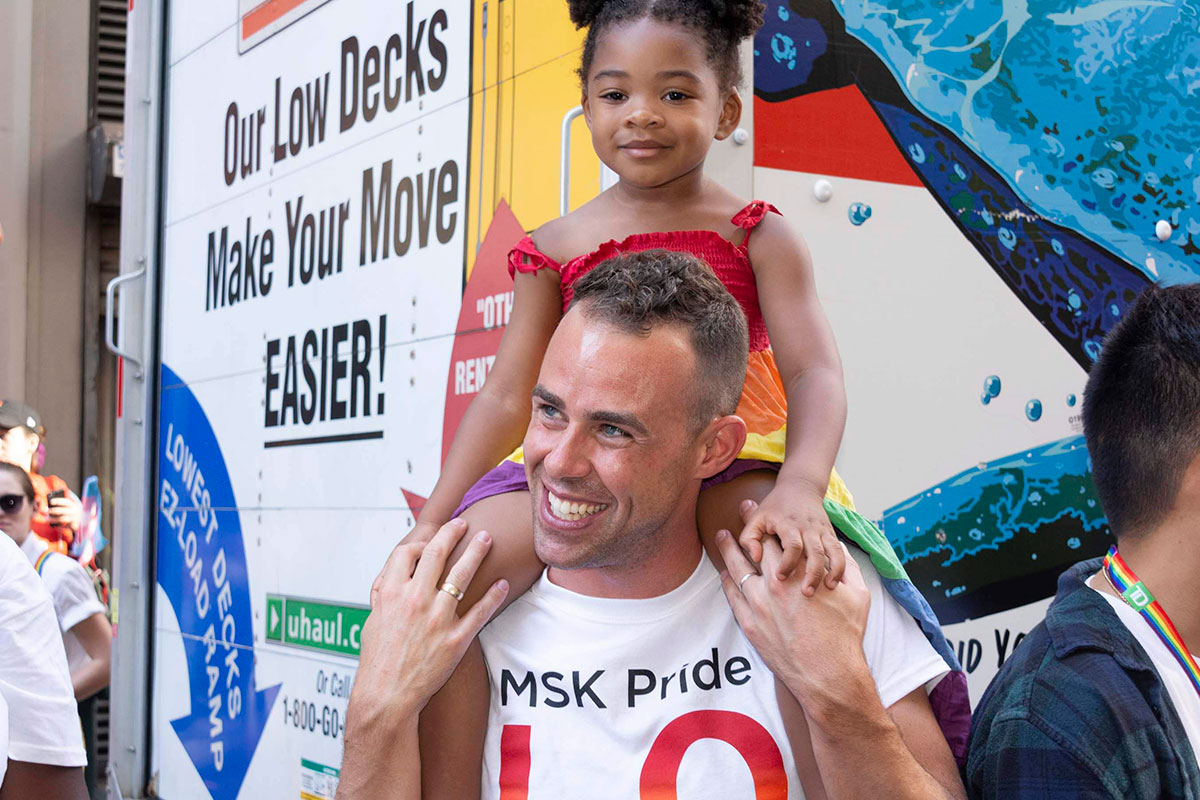
What Pride Means to Ben
“My introduction to Pride in college was through a celebratory lens,” says Ben. “But my relationship to Pride has changed.” He still celebrates, but he points out that the Pride March is just that — a march, not a parade. “It was started by marginalized people who were marching for their rights.”
As a gay man, and the father of two Black children, he’s experienced many “scary moments” over the last few years, when he had serious concerns about his family’s safety and stability amid a national political climate that felt hostile and threatening.
But he feels optimistic about the future and mindful of the need to continue to push for change on numerous fronts. He understands that his kids will face hurdles that he didn’t have growing up white — and that he has a huge learning curve as he strives to grasp “things I didn’t even know I didn’t know.”
“It’s a gradual process, but we were in the room when both of our kids were born. We’ve had time to better educate ourselves,” he says. “We have tried to surround ourselves with informed people, to diversify our circle of friends, and to listen to and learn from people of color.”
Ben and Kyle talk openly and honestly with their children about the world in which we live, and the unique complexities of the ways in which they will navigate it — always with the understanding that their own educational process is ongoing.
“We are doing our very best to raise empowered, self-aware, and confident children who will be proud of who they are and proud of our family,” Ben says.
